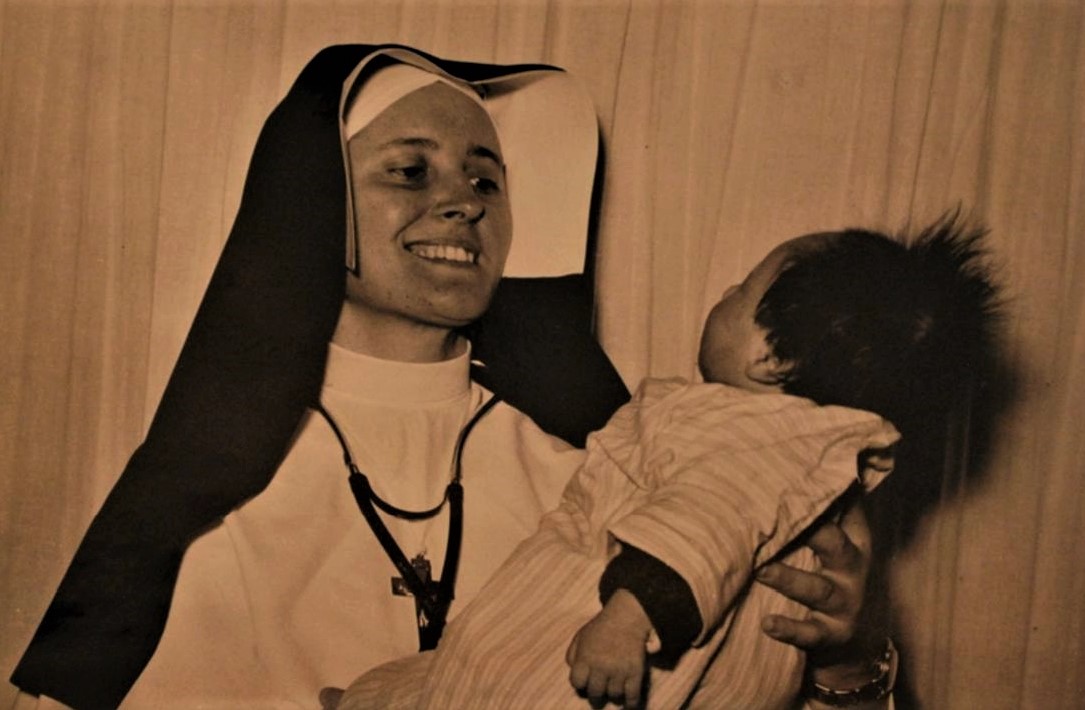Warm tributes were paid to Columban missionaries and the contribution they have made to the development of South Korea over many decades by a former ambassador to the country.
In his address at the opening of the exhibition titled ‘Irish Educators Abroad: Building Something Wonderful’, Eamon McKee, Director General of the Trade Division at the Department of Foreign Affairs and Trade, recalled learning about the huge contribution made by Irish Columban missionaries when he was Ambassador to South Korea.
“When I was Ambassador in Korea and I came across the Columban Fathers and Sisters. It is an amazing story which is not well known at all. Apparently, they were on their way to China and they were diverted – the Chinese revolution broke out – and they were diverted to Korea.”
“A number of Columban Fathers were executed or died during the Korean War because they wouldn’t leave their communities. It is a fantastic story of quiet compassion, working with some of the most marginalised Koreans in society.”
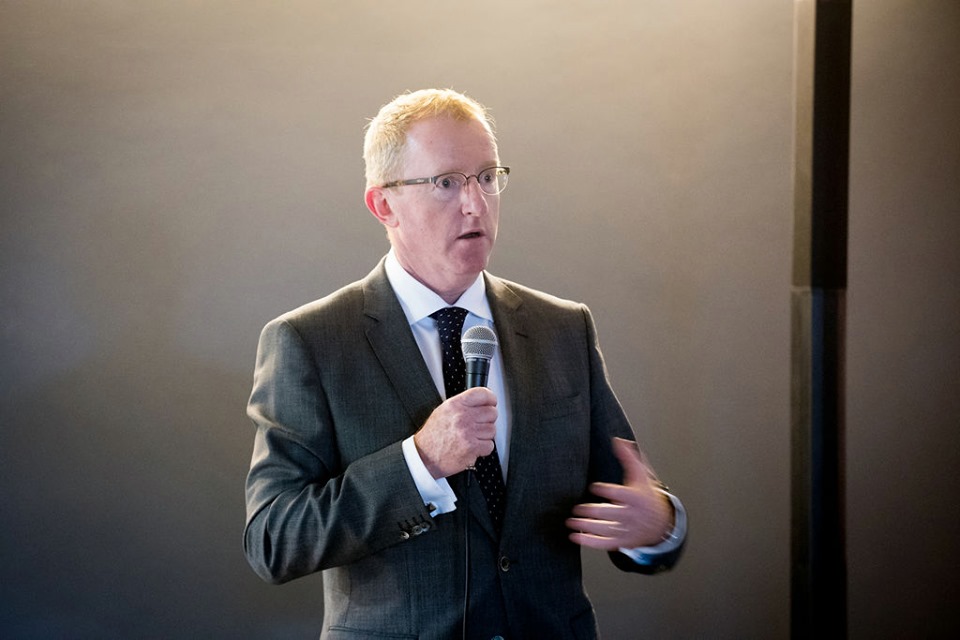
Eamon McKee, Director General of the Trade Division at the Department of Foreign Affairs and Trade, who was formerly Ambassador to South Korea.
He highlighted how some of the missionaries have been in Korea for up to 60 years.
He said Sr Gerardine Ryan was “a great example” of the Columban mission. “She set up accommodation and factories and businesses for educationally challenged Koreans, a very marginalised group. She is absolutely heroic.”
He said Sr Gerardine had travelled to Korea by boat when she was first missioned there and didn’t get home to Ireland for ten years. “Her story is unsung”.
Fluent in Korean, which the former ambassador said is a very difficult language, when you spoke to her in English, Sr Gerardine’s accent was “pure Galway”!
Speaking about the exhibition, which continues at EPIC Museum in Dublin’s docklands until September, Eamon McKee said what he thought was impressive was that it showed the range of places Irish educators have gone and the intellectual depth that they brought with them, the organisational capacity and the sheer impact that they made.
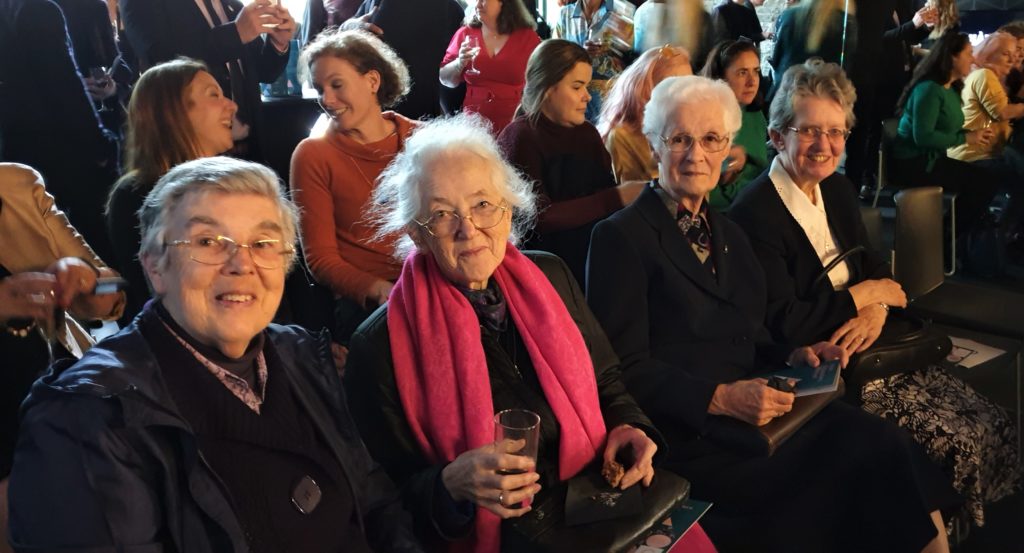
Columban Sisters who attended the launch of the exhibition at EPIC Museum from left: Sr Nora Mary O’Driscoll, Sr Redempta Twomey, Sr Sheila Crowe and Sr Margaret O’Brien.
“There is no where you can go where you don’t come across the Irish and the more tough and exotic the locations, it is inevitably led by the religious. It is very hard to find a diplomat, certainly in Africa, that hasn’t a story about meeting a politician or senior businessman in Africa that recalls with great fondness Sister whoever or Father whoever who taught them something and had a huge impact.”
He said the exhibition was also challenging the cliché about Irish emigration. “This is an incredibly rich story and involves pioneers and explorers, officials as well as missionaries who literally shaped many of the countries that they touched down in from South America to Korea, from China to the US.”
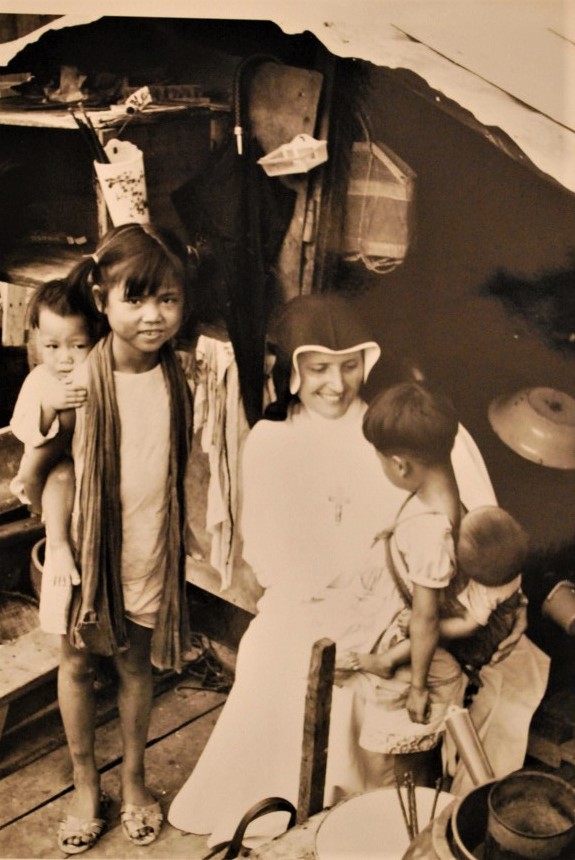
Sr Dr Mary Aquinas visiting a sampan (boat) family in Hong Kong.
The exhibition, which is sponsored by the Department of Foreign Affairs and Trade, highlights Ireland’s long history of ‘exporting’ male and female educators to work with communities all over the world.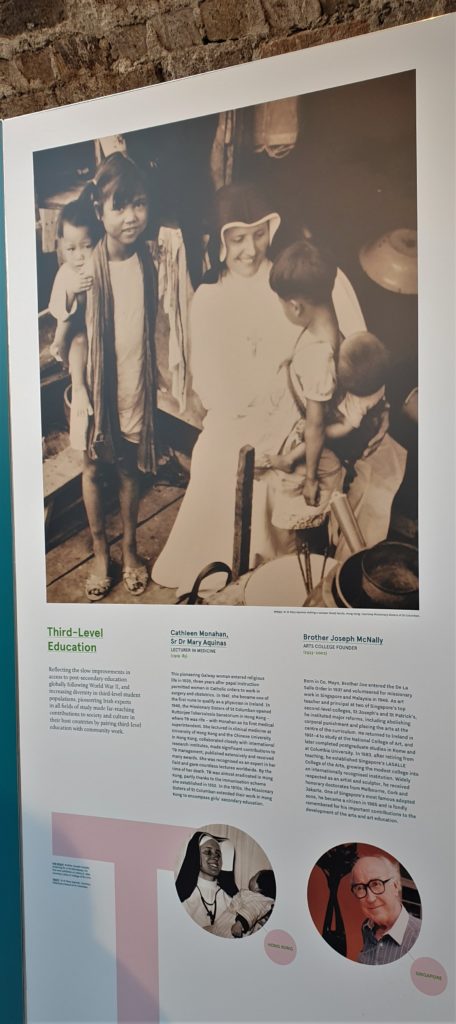
Pioneering Irish educators in all fields of study made far-reaching contributions to society and culture in their host countries sometimes pairing third-level education with community work.
An example of this highlighted in the exhibition is Columban missionary Dr Cathleen Monahan or as she became in religious life, Sr Mary Aquinas (1919–85).
Born in Galway, she entered the Columban Sisters in 1939, three years after a papal instruction permitted women in Catholic orders to work in surgery and obstetrics.
In 1947, she became one of the first nuns to qualify as a physician in Ireland.
In 1949, the Missionary Sisters of St Columban opened Ruttonjee Tuberculosis Sanatorium in Hong Kong, where TB was rife.
Sr Mary Aquinas was its first medical superintendent and she also lectured in clinical medicine at the University of Hong Kong and the Chinese University in Hong Kong.
Collaborating with international research institutes, she made a significant contribution to TB management and published extensively on her findings, and duly received several awards for her expertise in this field.
By the time of her death, TB was almost eradicated in Hong Kong, partly thanks to the immunisation scheme she established in 1952.

